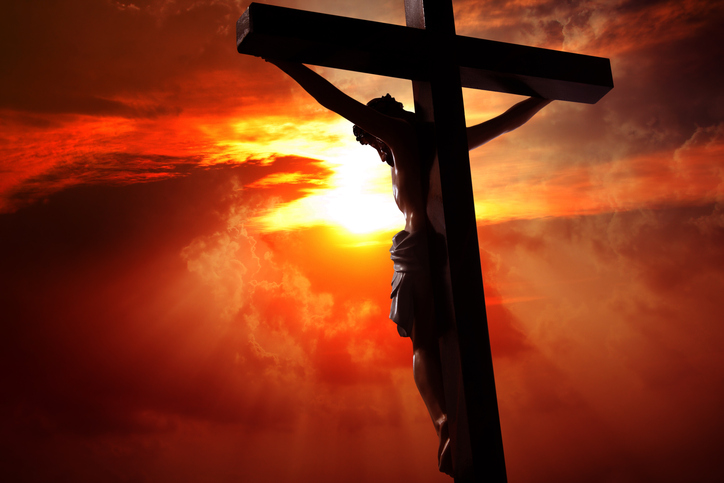The cross. The Triumph of the Cross. The hymns sung at Mass today will be triumphant, glorious, majestic. Triumph. For a minute we might forget the reality of our crosses as we focus on the meaning of Christ’s triumphant self-gift on the wooden cross planted on Calvary and at once extending as a bridge between heaven and earth.
But just so that we don’t forget, the Church gives us a very carefully selected set of readings today. First Reading: the Israelites were beginning to regret leaving Egypt. Impatient and exhausted they asked Moses, “Where is the food? Where is the water? Are we going to be left to die here in this desert?” The Lord could possibly have “felt” some regret over having chosen this people—now so angry and distrustful of his love and power—to be his people, his dear possession more precious to him than any other people. This is the people with whom he made a covenant of everlasting love which he promised never to revoke. In punishment for their complaining, the Lord sent saraph serpents among them.
In the second reading, an ancient hymn of the early Church, the carmen Christi or Christ-hymn, we see the magnificence of a man who went straight to his betrayal and death, the Son of God who complained neither against God nor man, who suffered as the Servant for the sake of the lives of those who had wandered far, very far, from his Father, with no real ability to return on their own to his heart.
In the Gospel, it is clear that this Christ is the One lifted high—as the “saraph serpent” lifted up by Moses—that anyone who believed in him might have—once again—eternal life. God did this, for the world that had rejected him, out of love for them. In the mystery of the cross, there is no resentment or regret, but only the self-forgetful good brought about for the other at one’s own personal cost.
The crosses that break into our lives break open our hearts, and in the broken pieces of our dreams and the shattered images we had of God and ourselves, the poison of unacknowledged, unwelcome resentment, confusion, and regret is drawn out. It is a good thing. Without the desert grumbling, we would not know what our wounded fearful hearts harbor. We would not look to the Christ hanging on the cross for our healing. We would not at last breathe deeply of a love that won’t let us go, a love that could only be divine. And at last, then, we too will learn to love divinely.
Regrets are complicated things for human hearts are wounded, wounding, and oh so tired at times. But the Feast of the Triumph of the Cross is yet today for us personally and for all of us together the healing radiance of the Christ who bears the heavy burden of our weighty sorrow because he loves us and can’t let us go.
May the responsorial Psalm ring out through our hearts: Remember the works of the Lord!

Kathryn James Hermes, FSP, is author of the newly released title: Reclaim Regret: How God Heals Life’s Disappointments, by Pauline Books and Media. An author and spiritual mentor, she offers spiritual accompaniment for the contemporary Christian’s journey towards spiritual growth and inner healing. She draws from the spiritual tradition and her own lived experience to lead seekers deep within themselves and through their personal history to deepen their intimacy with and trust in God; live with greater joy, peace, and
interior freedom; and encounter the Lord in their past and present life experiences to find healing, grace, and newness of life. She is the director of My Sisters, where people can find spiritual accompaniment from the Daughters of St. Paul on their journey.
Website:
touchingthesunrise.com.
Public Facebook Group: https://www.facebook.com/groups/srkathrynhermes/
